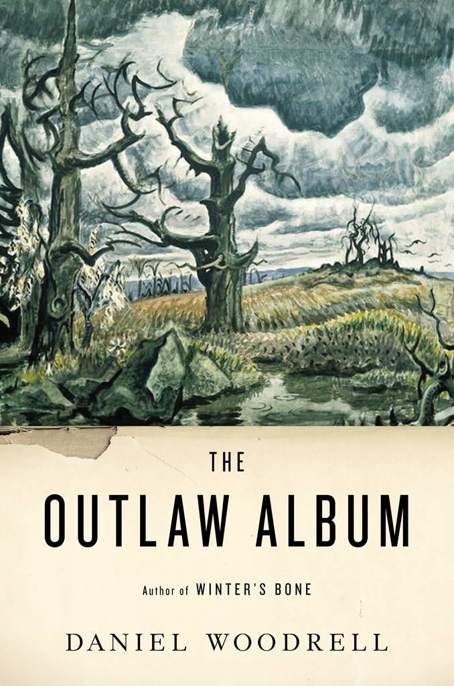
The Outlaw Album
Stories
کتاب های مرتبط
- اطلاعات
- نقد و بررسی
- دیدگاه کاربران
نقد و بررسی

July 25, 2011
In his eight novels, Woodrell (Winter's Bone) has been doing for his native Missouri Ozarks what William Faulkner did for rural Mississippi: introduce readers to a region whose rural residents are too often summarily dismissed in our American consciousness with simplistic stereotypes. The characters in collection of short fiction, Woodrell's first, lead hard, desperate lives that can erupt into violence and tragedy. Despite the simmering tensions among family members, between friends and neighbors, and, especially, towards strangers, however, the criminals in these 12 tales always maintain a simple code of honor as they seek their own brand of justice against those who've crossed them. A man brutally avenges the shooting of his wife's beloved dog by his snobby neighbor; a rapist is incapacitated and then cared for by a young woman until she realizes he's completely beyond redemption; an outsider's splendid new house is torched by an angry neighbor. Woodrell's spare, brutal prose, a kind of "country noir," captures the true essence of a rough little pocket of America's heartland that has yet to beâand may indeed never beâsmoothed over.

Starred review from September 15, 2011
Twelve spare, haunting and brutal slices of country noir from the genre's most gifted practitioner.
From Woodrell, author of the brilliant Winter's Bone, which was richly adapted into the Oscar-nominated 2010 film, now comes a collection of short fiction, previously published in outlets ranging from The Missouri Review and Esquire to hard-hitting anthologies like A Hell of a Woman. And boy, does Woodrell have a way with words. The first sentence of the first story captures its essence: "Once Boshell finally killed his neighbor he couldn't seem to quit killing him." In a sort of redneck therapy, one of the locals takes a squirrel rifle to his Northerly neighbor, then buries him back in the woods where he can take a hatchet to the man whenever he's feeling ornery. The Edgar Award–nominated "Uncle" is even worse. When a country girl tires of her uncle's raping and murdering lost tourists, she takes a pick-axe to him. There is "Twin Forks," in which a man tries to recapture his youth only to stare murder in the eyes. And "Florianne," which delves into a man's paranoia over his daughter's disappearance. There are war vets in "Night Stand" and "Black Step," reeling in a world where violence follows them home, and even a brief visit to the old outlaw Jake Roedel in "Woe to Live On." Woe, indeed.
Hard words and harsh trials from a writer who knows all too well the frozen ground he occupies.
(COPYRIGHT (2011) KIRKUS REVIEWS/NIELSEN BUSINESS MEDIA, INC. ALL RIGHTS RESERVED.)

June 15, 2011
Like Woodrell's remarkable Winter's Bone (catch the award-winning film), all the stories in this collection are set in the Ozarks, and all involve folks living on the edge. An Iraq vet is killed when he becomes unstable, for instance. But there's tenderness, too. With a five-city tour; I really recommend.
Copyright 2011 Library Journal, LLC Used with permission.

October 15, 2011
Woodrell's novels have the feel of short fictioncrisply detailed episodes that generate a remarkable intensity of felt lifeso it's hardly a surprise that, in his first collection of stories, he proves adept at tightening the focus of his telescope still further and homing in on cross sections of human pain, need, and frustration. His subjects in these 12 stories are largely drawn from the world of his novels: men and women living desperate, often criminal, lives deep in the Ozarks, lives regularly engulfed by meanness but also radiating a sense of hard-won humanity. In Twin Forks, for example, the humanity surfaces in the form of a shell-shocked Iraq War vet painting a picture of a dead cow; in Florianne, a story almost too painful to endure, we see love in the obsession of a grieving father who looks deeply in the eyes of his neighbors, trying vainly to detect which one of them abducted his daughter. And in The Echo of Neighborly Bones, we somehow find abiding tenderness in the crazed actions of a murderer: Once Boshell finally killed his neighbor he couldn't quit killing him.(Reprinted with permission of Booklist, copyright 2011, American Library Association.)

























دیدگاه کاربران